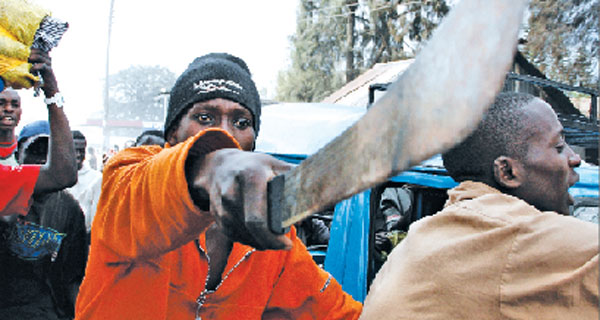×
The Standard e-Paper
Fearless, Trusted News
 |
| Youths riot during the 2007-08 post-election violence in Kibera, Nairobi. [PHOTO: FILE/ STANDARD] |
By PATRICK KIBET
For those awaiting justice for atrocities committed after the 2007 elections, the crimes that destroyed their lives linger fresh in the minds.